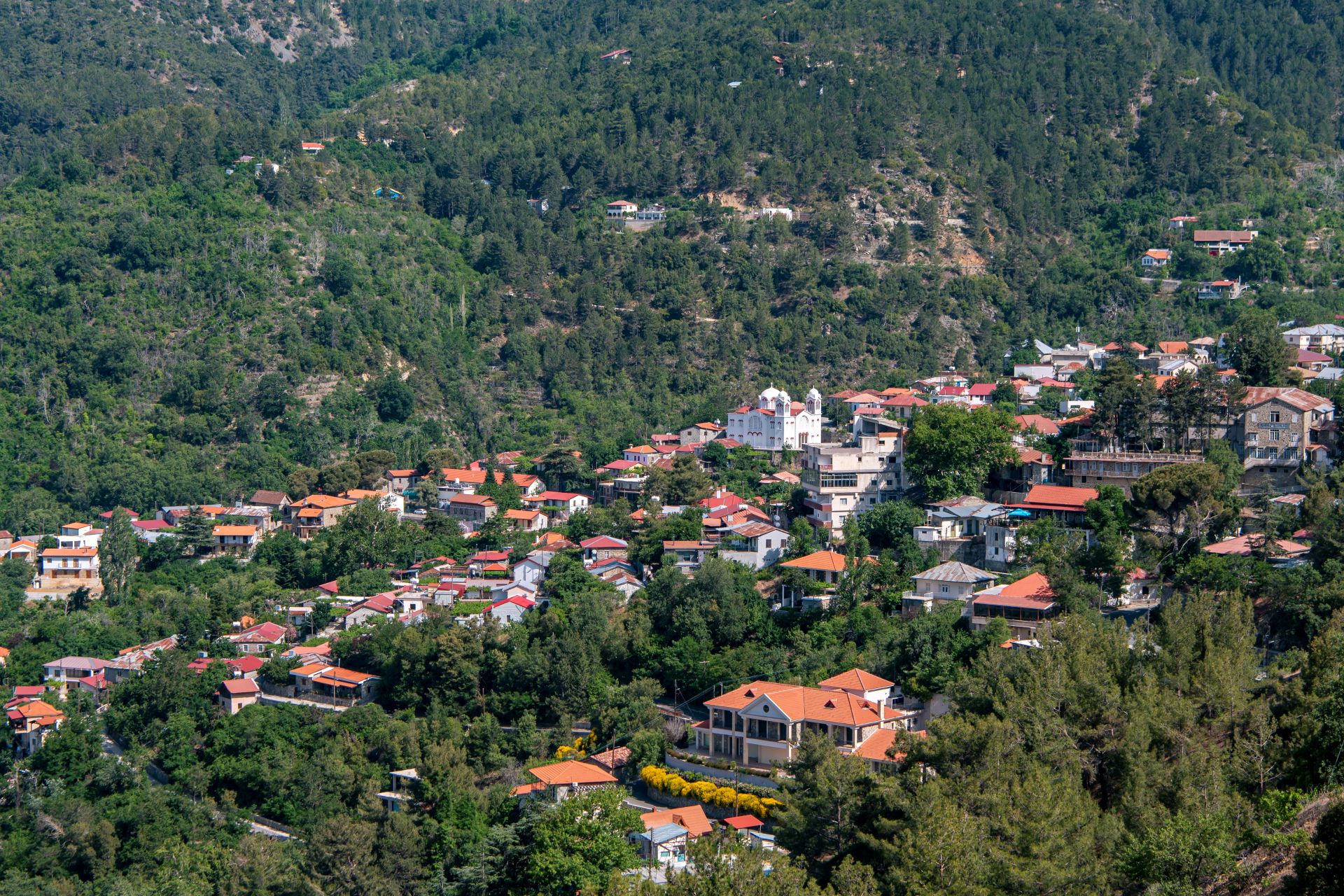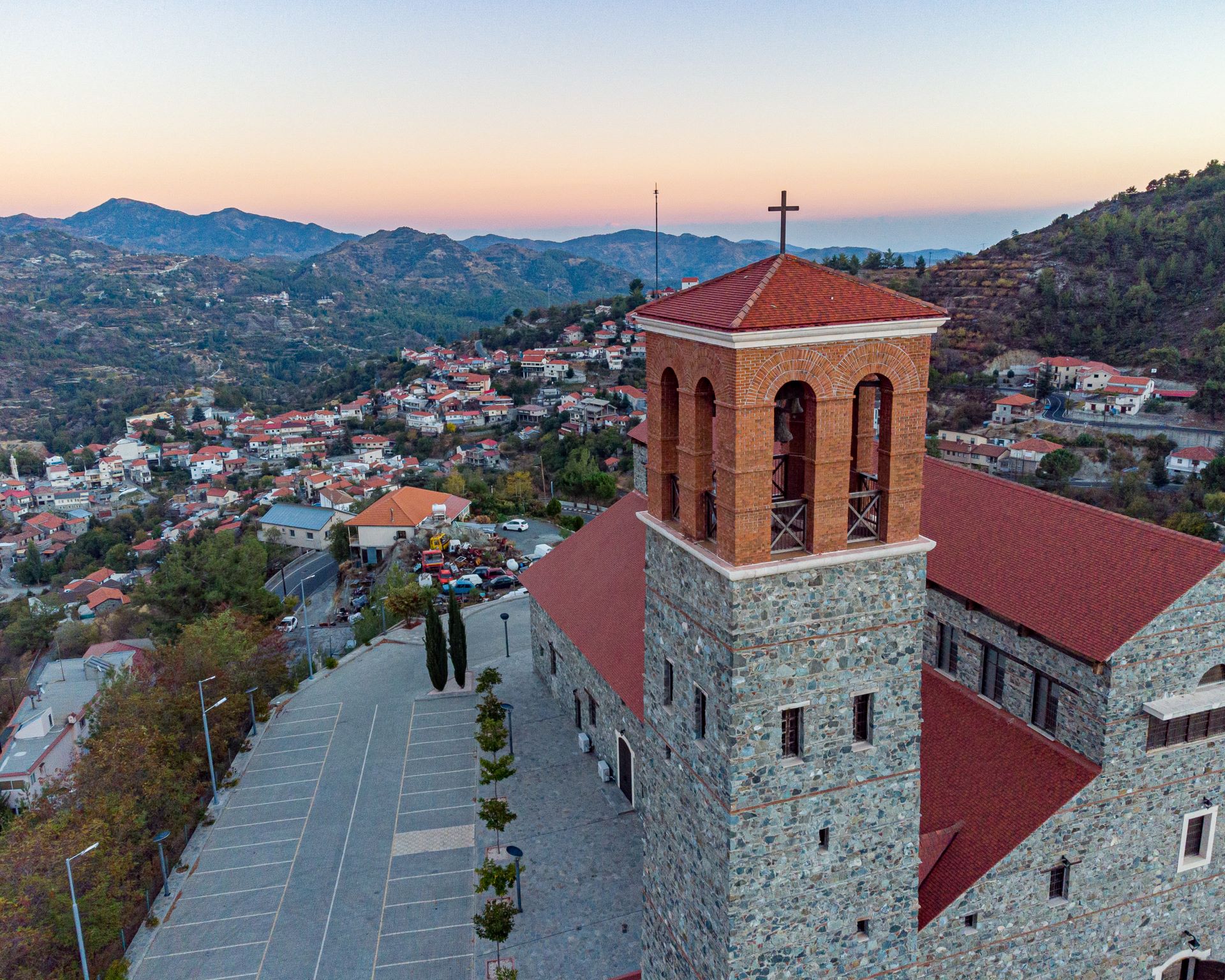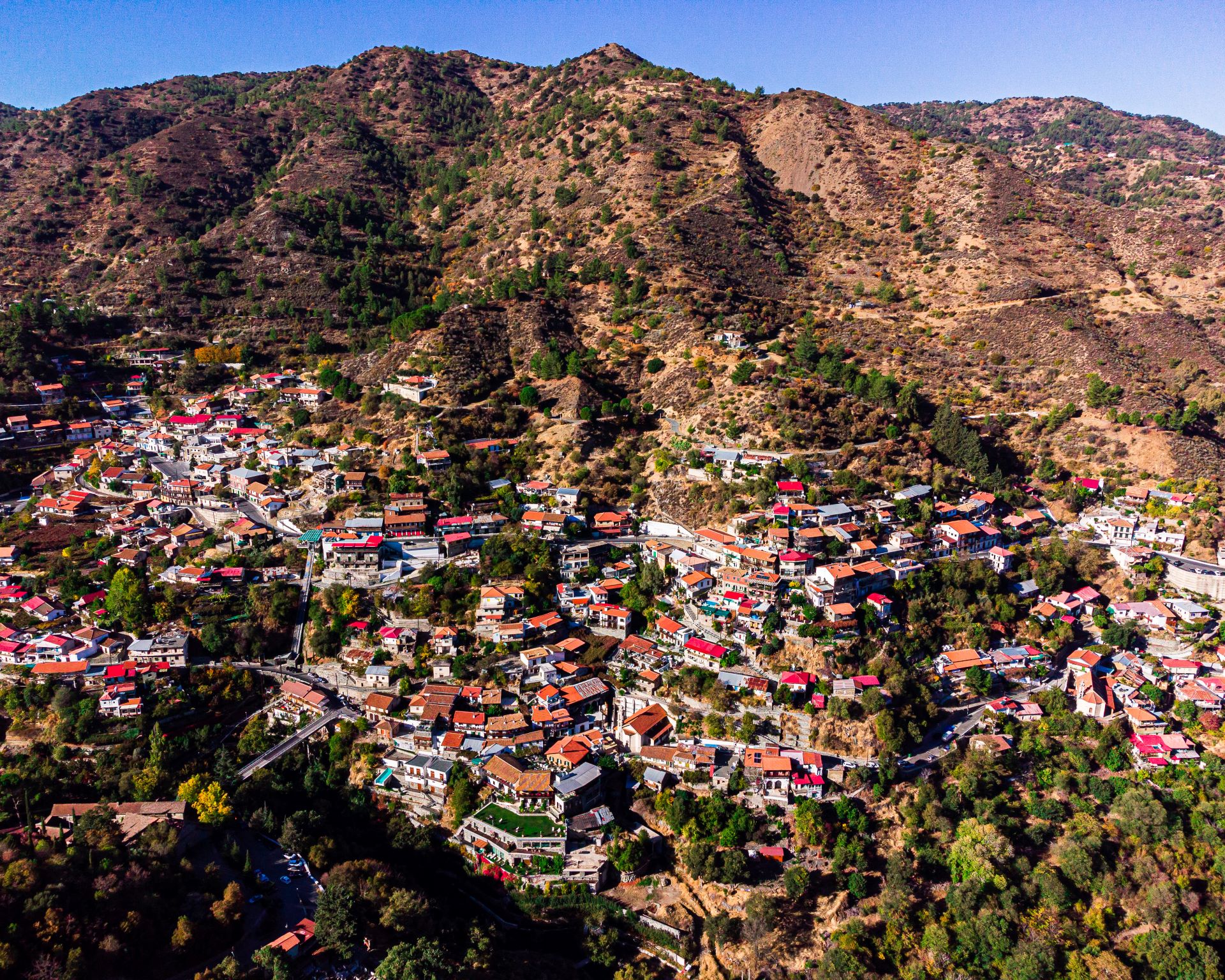Trailblazing Sustainable Tourism in Cyprus’s Largest Mountain Range
Behind Cyprus’s coastline lies Troodos, a mountain region at the crossroads of climate challenges and sustainable transformation.
Tourism in Cyprus is often associated with abundant sunshine, a crystal-clear sea, and idyllic beaches. Already in the 1960s and 1970s, before the island’s division in 1974, Cyprus was renowned for its mild Mediterranean climate, attracting mainly European tourists, including celebrities and high-profile visitors.
Today, despite its turbulent political and economic history, the island’s tourism sector remains a major contributor to the country’s economy. Together with the hospitality industry, it contributes around 15% of the country’s GDP.
Cyprus’s forgotten heartland
Beyond the beaches, however, lies Cyprus’s lesser-known heartland: the Troodos Mountain range, which covers roughly a third of the island. Its highest peak, Mount Olympus, rises 1952 metres above sea level. The region is distinguished not only by its high mountains, but also by its picturesque villages, Byzantine monasteries, and mountaintop churches, as well as extensive river networks. These features make Troodos ideal for a wide range of activities, such as hiking or fishing in summer, skiing in winter, and year-round opportunities to experience nature, local culture, religious heritage, and diverse cuisine. The region’s rich flora and fauna are protected under national and European conservation frameworks.

The Troodos region today comprises around 70 villages with a population of approximately 30,000 people. Agriculture and livestock breeding remain the main economic activities, alongside the processing of agricultural and dairy products, and hospitality services such as restaurants, taverns, hotels, and agrotourism. Yet in recent years, the region has faced multiple challenges that hinder its socio-economic and environmental development. Its central location means Troodos reflects and intensifies some of the island’s most pressing issues: water scarcity, desertification, droughts, ecosystem disruption, extreme weather events, biodiversity loss, as well as unemployment, brain drain, and social exclusion. One example is the region’s six dams, which supply much of Cyprus’s water: Prolonged dry summers and chronic shortages have left reservoirs severely depleted. This summer, the island’s dams hold less than 20 per cent of their capacity, according to the Water Development Department, exacerbating an already dire situation.
This July, several mountain communities on the southern side of the Troodos range had to be evacuated due to raging wildfires fuelled by extreme heat and powerful winds. These fires are a stark reminder of the mountain’s vulnerability to climate change and extreme weather hazards. Cyprus lies within the southeastern Mediterranean climate change hotspot, where summers are expected to become increasingly hot and autumn and winter significantly drier in the coming years.
According to a recently released study by the EU-funded project Regions4Climate (R4C) that assessed climate risks in the Troodos region, the area will be seriously affected by climate change. Key impacts include fewer frost days, reduced snow depth, higher fire weather risk, and more frequent drought conditions. These changes will severely affect the region’s ecosystems and socio-economic developments in the near future.
In an interview shared on the Regions4Climate website, Paraskevi Nikodimou, a resident of the Troodos village of Kyperounta and founder of Panic Sweets, which uses local fruits to make healthy energy bars, described how she experiences climate change in her daily life, “The world around us is changing, and we cannot ignore it. Temperatures are rising, rainfall is less frequent, and I see all of this every day in my business: plants struggling to survive, strawberries with less flavour, or apples that are not as juicy as they used to be. To adapt, we try to use more environmentally friendly techniques and materials and make sure that we are doing our part for a more sustainable future.”

Beyond climate change, Paraskevi also describes the challenges of sustaining a new business in a remote mountain village as Kyperounta, “life as an entrepreneur here is not always easy. Things move at a slower pace; the things you want to buy are not always available, or transporting them is more difficult. But the warmth of the village and the support of local producers keep me strong and determined.”
In addition to the impacts of climate change, and in many ways exacerbated by them, Troodos is also facing population decline, with many, especially young people, leaving for cities in search of employment. Dominant economic activities such as agriculture, agrotourism, and agrifood production have become increasingly challenging, offering limited job and career opportunities. Today, Troodos risks seeing a large part of its territory and its productive activities fall into neglect, which in turn places further strain on natural resources and ecosystems due to the absence of sustainable human management and stewardship.
A model for sustainable tourism development
Louisa Shakou is the Climate Change Adaptation Coordinator at the Cyprus Energy Agency, and the technical coordinator of the activities in Troodos for the EU-funded project Regions4Climate. She is responsible for overseeing the development and pilot implementation of sustainable tourism models in the Troodos region as part of the R4C project. Louisa sees the multiple challenges of Troodos as an opportunity rather than an obstacle. They call and motivate for a socio-economic and environmental transformation in the region, a transformation that can be paradigmatic for Cyprus as a whole, as she explains to REVOLVE, “One of the key activities in Cyprus is tourism. In Troodos, however, tourism represents only a very small share of Cyprus’s overall tourism, only around two percent. Most visitors are drawn to the beaches.”
Within the R4C project, the idea is to strengthen tourism in Troodos as an important economic driver while also ensuring that development is sustainable. As Louisa puts it, the goal is to avoid repeating “the mistakes made in the coastal areas of Cyprus, where poorly controlled development led to massive hotels being built right next to the beaches, often at the expense of nature”. The Troodos forest ecosystem, with its unique species already under stress from climate change, must remain a priority for protection even as tourism grows.

This is why R4C works to develop a sustainable tourism model in Troodos, that strengthens community resilience while preserving the region’s traditional products and unique ecosystems for generations to come. It focuses on four main tourism-related sectors: energy efficiency, mobility, nature conservation, and food production.
Louisa explains the different activities that are already launched under these four sectors:
With rising temperatures, small hotels in the Troodos region face growing pressure to manage energy use, especially as air conditioning demand increases. The project is helping hoteliers improve insulation and shift to renewable energy, with a pilot hotel already implementing these measures. “Once completed, we will produce a manual and organise workshops for other hoteliers in the region to encourage this energy transition, protecting the environment while also reducing operating costs,” Louisa explains.
The project also promotes sustainable mobility by working with the Ministry of Transport to connect Troodos to major cities and airports by bus, while encouraging visitors to use e-bikes in the mountains. At the same time, it encourages tour operators to integrate conservation into their offers and supports farmers in adapting to climate change, Louisa tells, “In particular, there is a problem of spoiled fruit. Troodos is renowned for its fruits, especially stone fruits, but rising temperatures mean that a proportion of the harvest is now lost. We are training villagers to process this produce in innovative ways, such as using solar-powered dehydration or producing fruit liqueurs.”
In the future, locals see Troodos as a hub of sustainable tourism, where tourists, hotels, food service and production companies, farmers, and artisans not only preserve and protect the environment and natural resources, but also promote sustainable pathways to economic growth and regeneration. By achieving this, Troodos can serve as a model for Cyprus and other Mediterranean islands, helping to transform the island’s tourism sector and approach to nature and natural resources.
